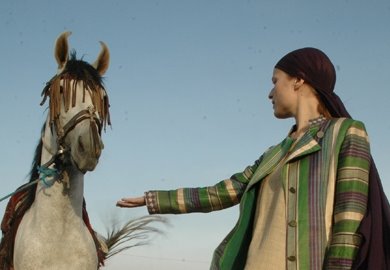What I did on 17 June 2007
On the day of the deadliest suicide bomb in Afghan history, I:
- finished my morning coffee, wondering if the loud noise had really been a bomb.
- donned my headscarf and walked the two blocks to the office, with eyes lowered to avoid men's attention.
- interviewed someone that may become my boss (I hope he still wants to move to Kabul).
- gasped as the number of dead passed 35, most of them instructors at the Kabul Police Academy.
- edited a research paper on the struggle to reform the Afghan National Police.
- posed for pictures with a Scottish friend wearing a kilt for the Queen's birthday party.
- thought about the families of those who died.
- went for a long swim in the UN pool, followed by a Heineken at the poolside bar.
- asked myself whether I should really turn down law school admission this year.
- tried on a burqa for the first time.
- watched CNN and BBC footage of the carnage that had taken place five minutes from my house.
- contemplated how life does not ever stop or pause, even in the face of disaster.

